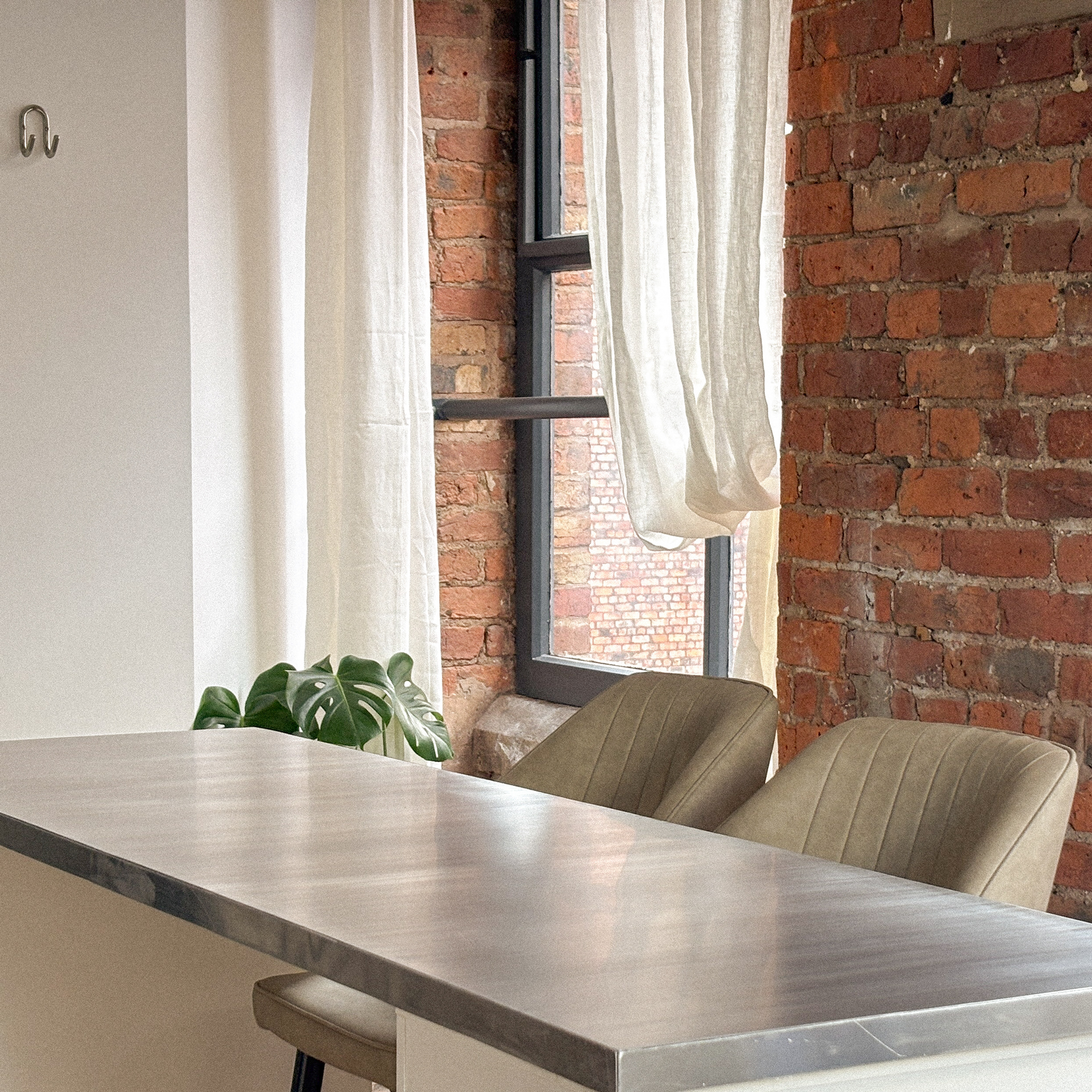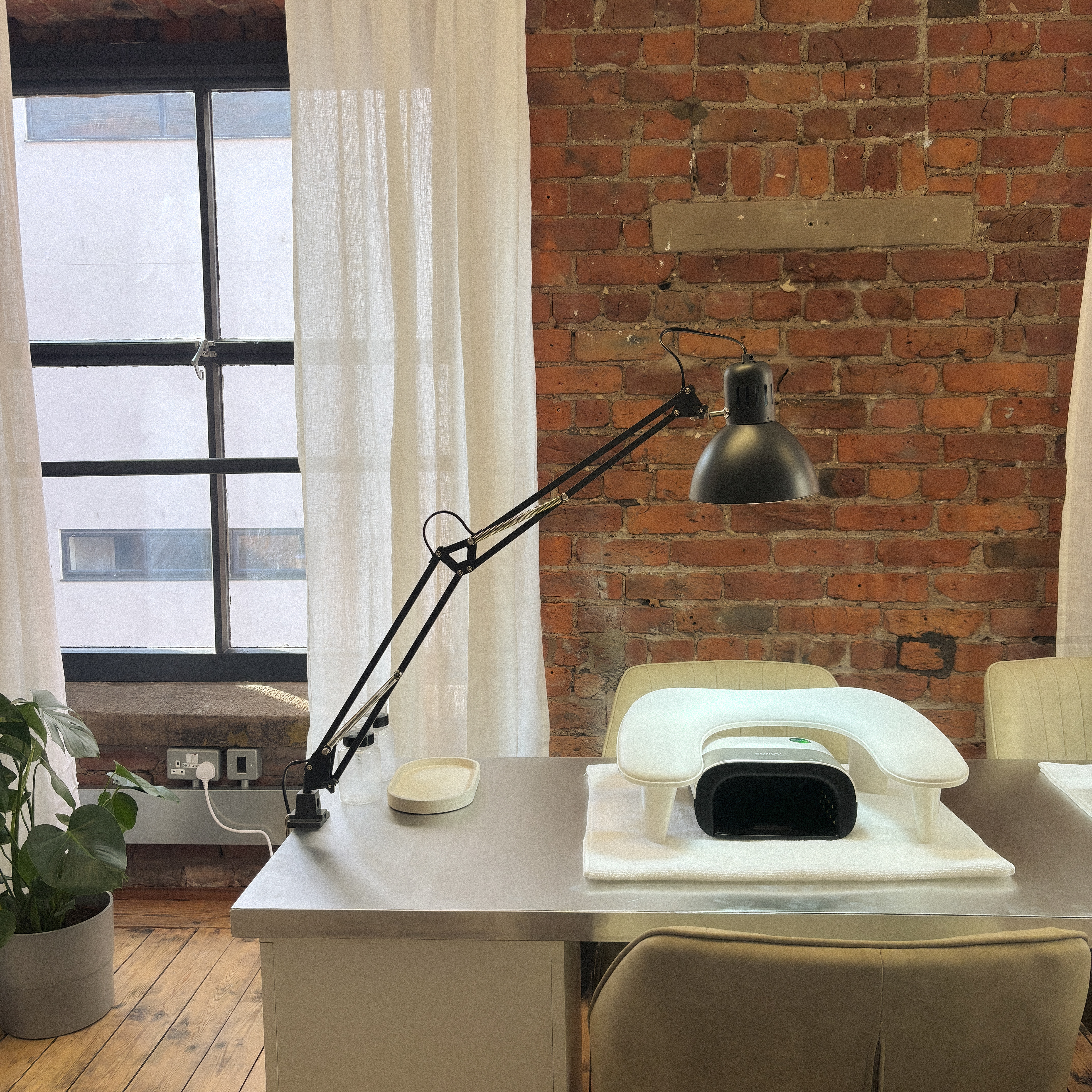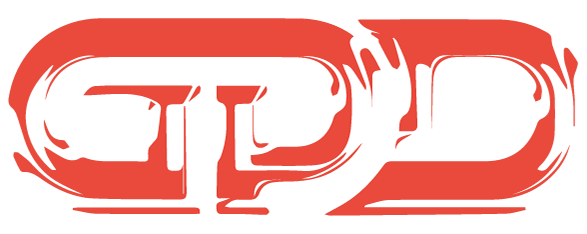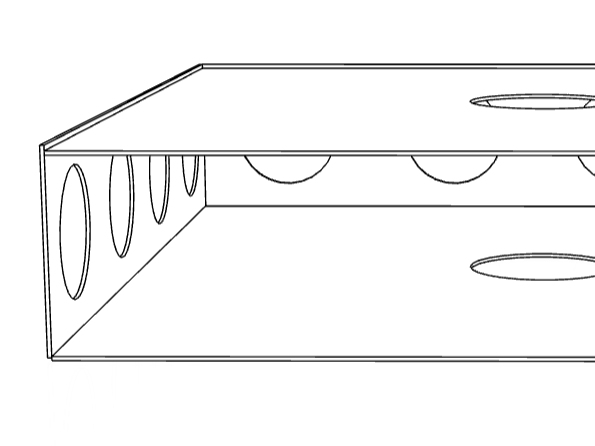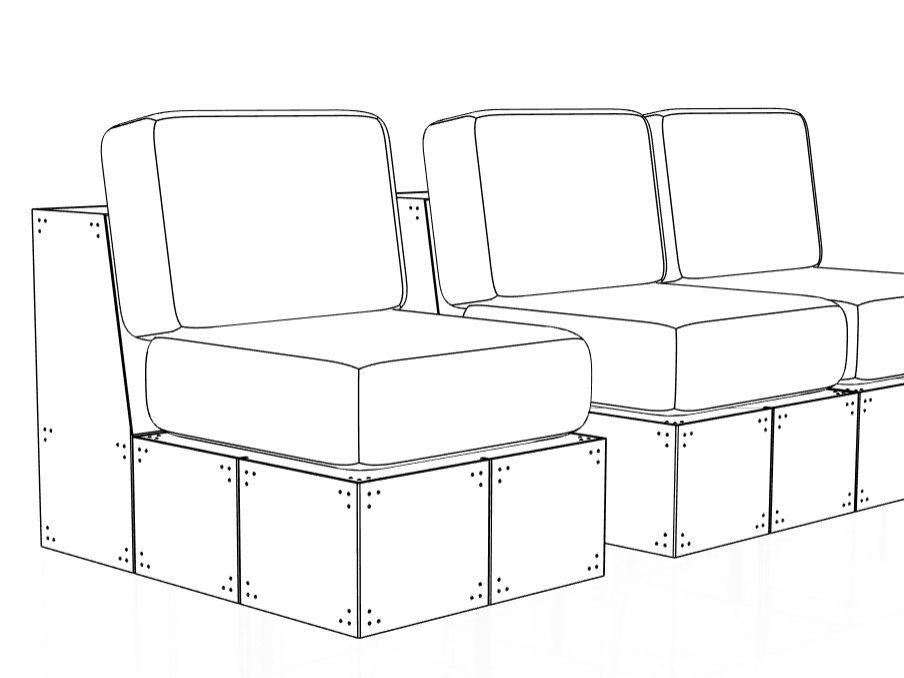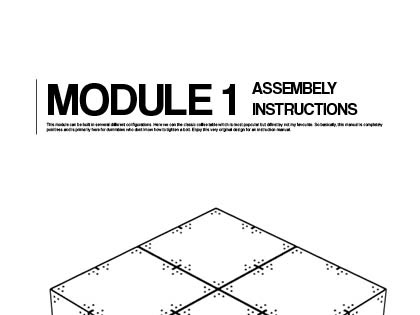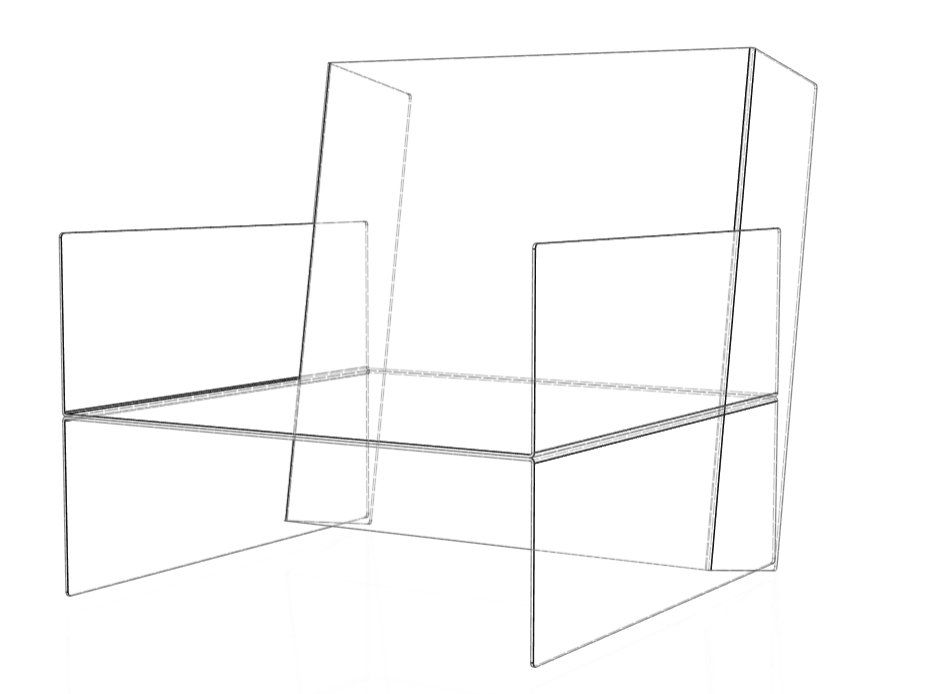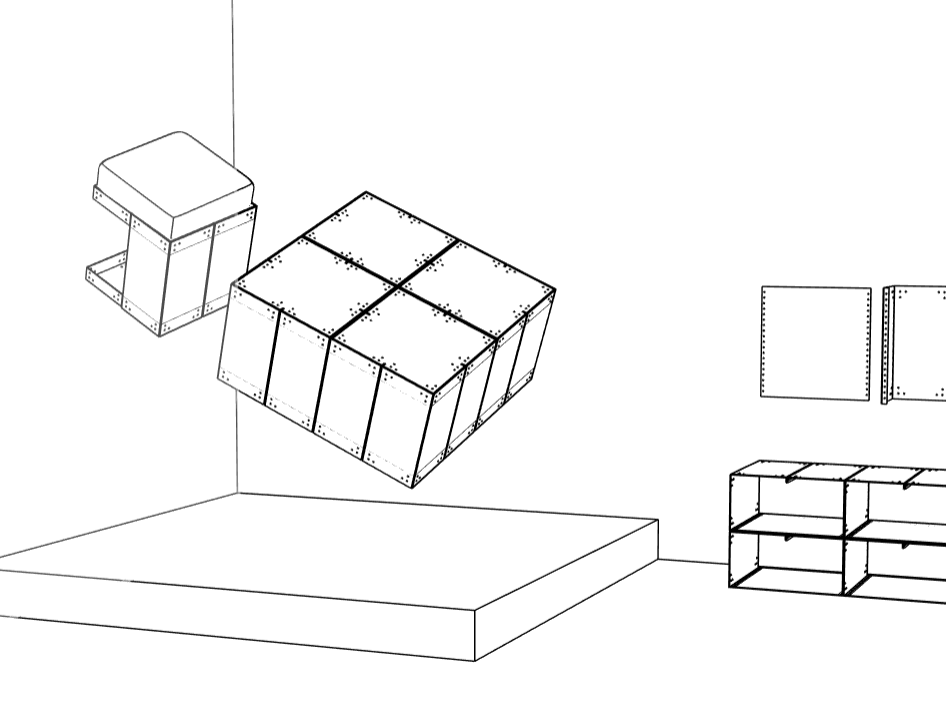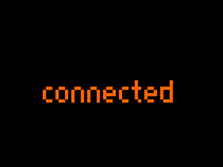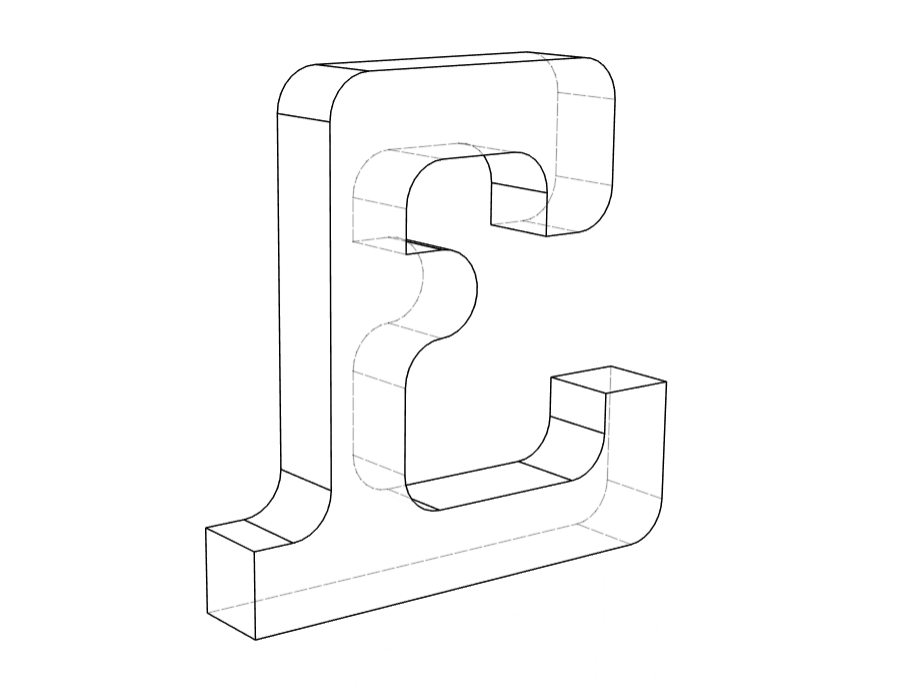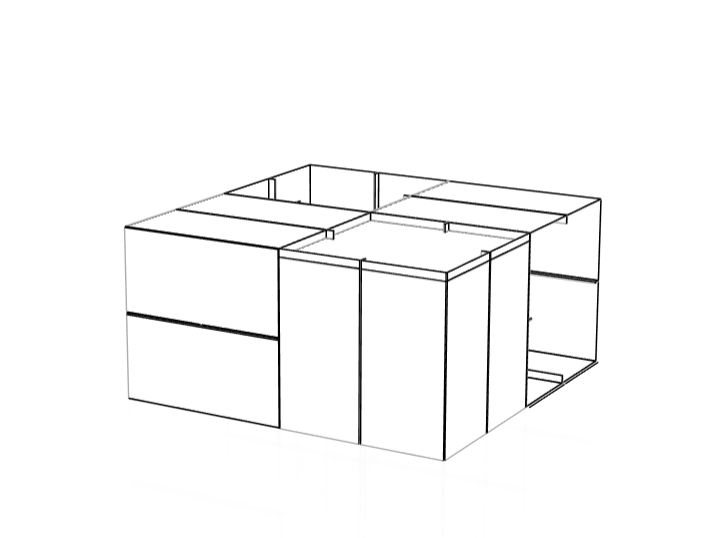Throughout this semester, I’ve pushed myself to explore different career paths and focused on developing skills that will help strengthen my CV. One of my main goals was to improve my proficiency in Autodesk Fusion 360, and I’ve dedicated a lot of time to getting more comfortable with the software. Although I haven’t yet had the chance to sit the certification exam, I’ve definitely made significant progress.
The improvement is clear when comparing my early work, like the basic 2D sketches from my project proposal, with some of the more complex components I’ve created this semester. There’s still plenty for me to learn, but I’ve genuinely enjoyed using Fusion 360, and I’m excited to continue building on these skills in future projects.
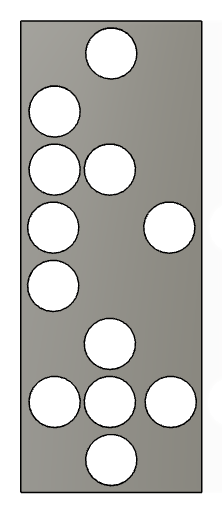
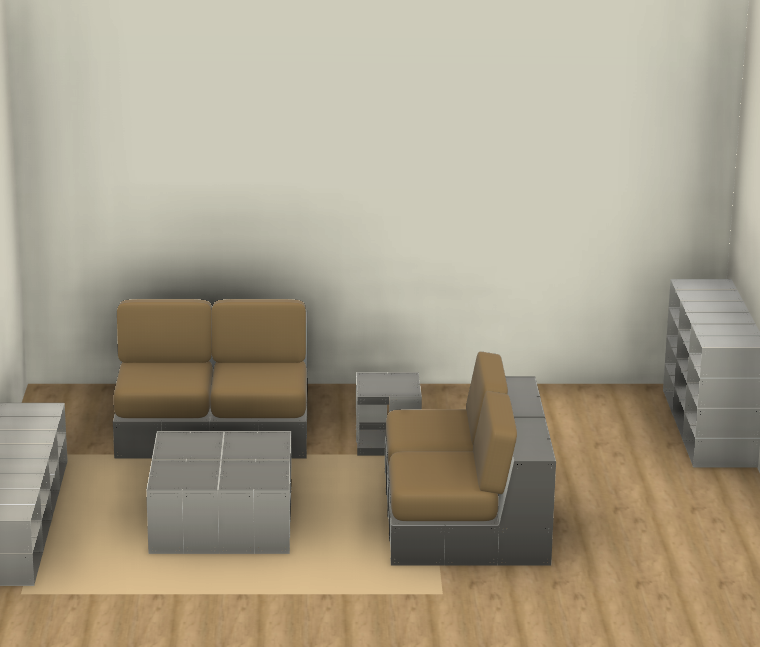
I've been enjoying this software so much, I even found time to go back to my previous 2 furniture projects and used my news skills to draw them at a 1:1 scale in Fusion.
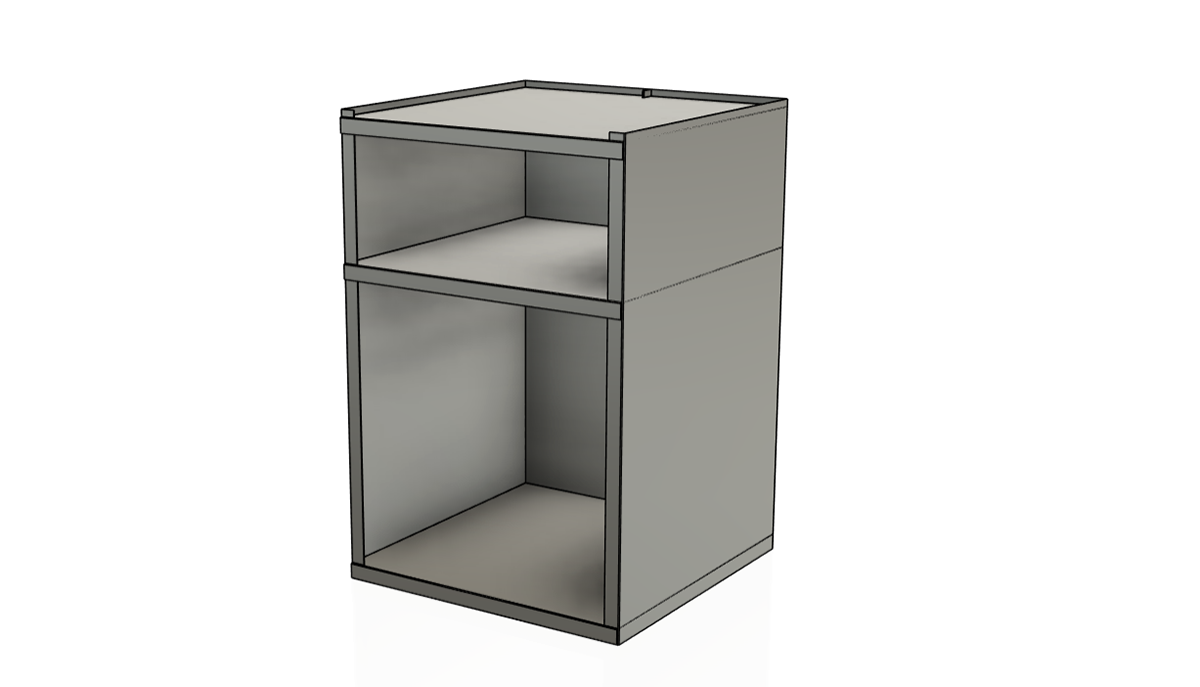
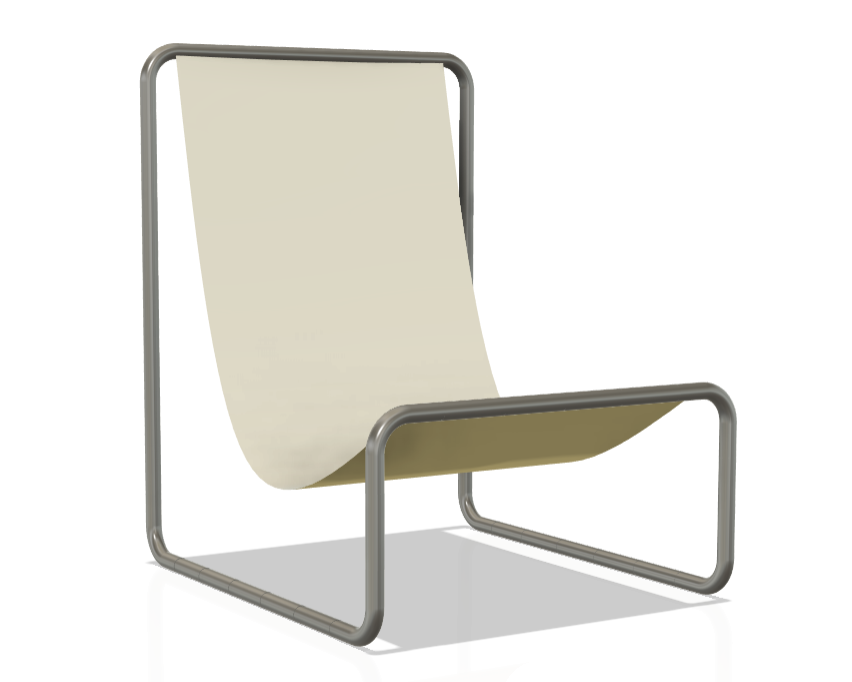
Design Futures
Alongside developing my CAD skills, I’ve also been actively networking with people involved in various areas of design across Manchester. One highlight has been working closely with Aaron from M3 Industries — a company that’s been recommended to me several times over the past two years. I recently supported Aaron on a project for the Manchester Marathon, helping with the build of the Adidas - Adizero pop-up shop on Port Street. It was an incredibly exciting opportunity to be involved in and gave me valuable hands-on experience in a fast-paced, real-world setting.
I’ve also been interning at Factory International for nine weeks throughout this semester, and it’s been an incredible experience. I’m really glad I applied when I saw the opportunity come up. I spent one day a week working with their Brand Partnerships team at Aviva Studios, which gave me a valuable behind-the-scenes look at how such a large and influential cultural organisation operates. It also introduced me to new areas of art and design that I hadn’t encountered before.
I was fortunate enough to attend the launch event for MIF25 — the Manchester International Festival that runs every two years. The event was filled with inspiring speakers, including Low Kee Hong, who introduced some of the incredible works set to be shown across Manchester this year. To top it off, I found myself sitting just a few rows behind football legend Edgar Davids, which really highlighted the scale and reach of Factory International’s influence.
Day-to-day, I worked on brand research — looking into the kinds of partnerships major brands have been involved in, with case studies like AMEX sponsoring Wimbledon. I was also involved in reaching out to potential partners and even had the opportunity to pitch some of my own event ideas. It felt amazing to be trusted with that level of responsibility and to be part of a process that extended beyond just research.
Although this role was a bit of a departure from my usual design path, I was still able to bring in my graphic design skills when helping to create decks and proposals. I was surprised by how much this stood out to the team — I had assumed most people there would be designers, but many relied heavily on PowerPoint, which made it difficult to create visually compelling materials. Being able to apply my design knowledge in this way made a real impact.
Off the back of this, I’ve actually secured more work over the summer. It’s both scary and incredibly exciting. I’ve been in discussions with the lead project manager at Factory, who’s asked me to work on several briefs to redesign modular spaces within Aviva Studios. This includes producing layouts and plans that show how fixed and movable furniture can be arranged for different uses.
What’s most surprising is how closely this opportunity ties back to my current design practice — something I never expected. After speaking with Nadia, the project manager, she even asked for my day rates, which means I’ll be freelancing for Factory. That alone feels unreal. I never imagined I’d have freelance design jobs lined up before even graduating. In fact, I wasn’t sure freelancing would be financially viable at all — especially while living in central Manchester — but this opportunity is proving otherwise.
Studio Table Top Comission
Earlier this year, I was commissioned to create some bespoke tabletops. It wasn’t a particularly complex job—the client simply wanted aluminium sheets to cover her existing tables for a nail salon in Manchester. This actually ties back to my connection with Beehive Mill. Since installing the tables, I’ve had several other enquiries about custom metal furniture, but due to my busy schedule, I haven’t been able to take on more work just yet.
It was really encouraging to see people taking an interest in my design style and being willing to pay for it. I think this kind of bespoke, made-to-order work is the most realistic and exciting way for me to start a business—creating fitted pieces tailored to each client’s specific needs, rather than producing designs upfront and hoping someone wants to buy them.
